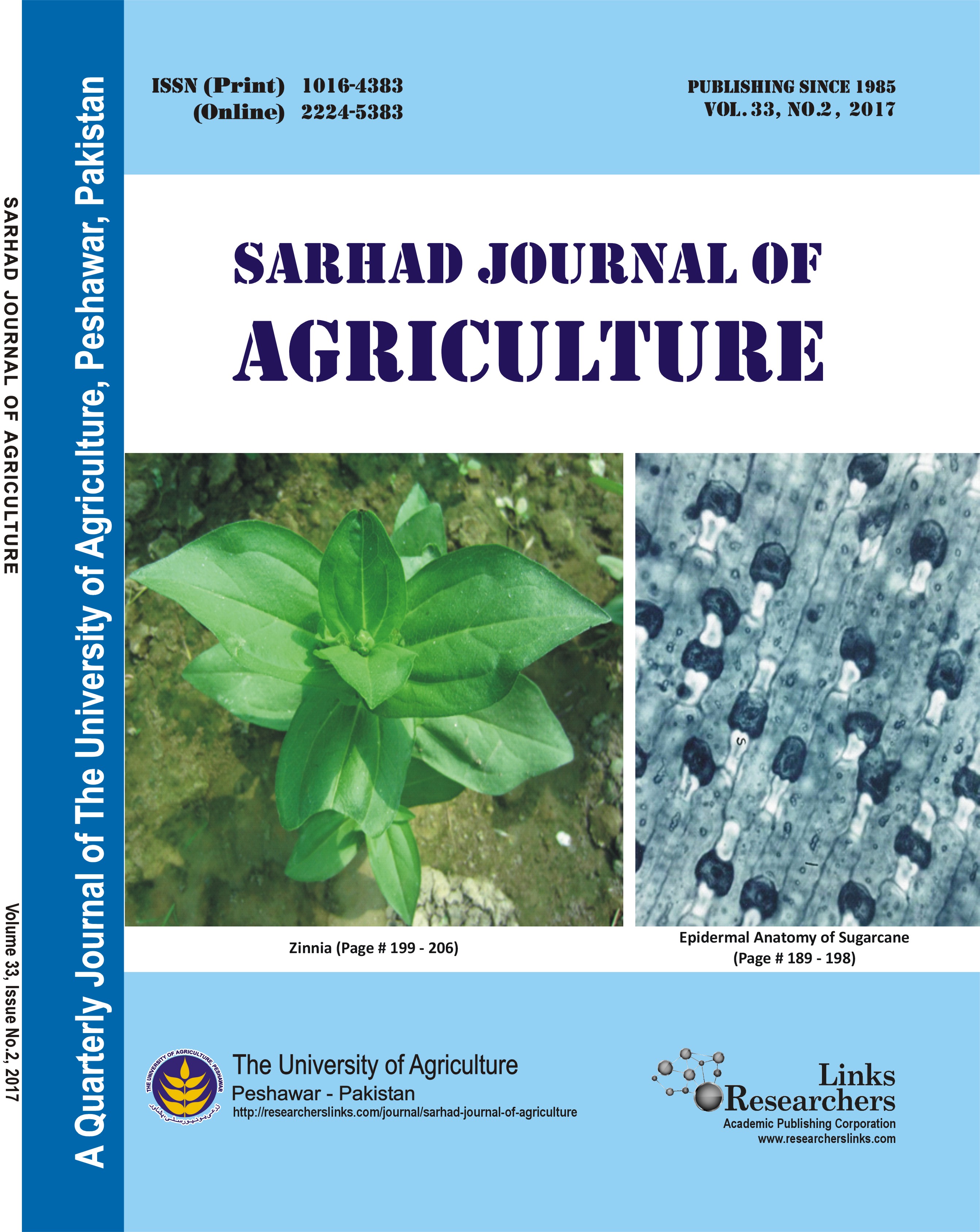An Assessment of In-service Training Needs for Agricultural Extension Field Staff in the Scenario of Climate Change using Borich Needs Assessment Model
An Assessment of In-service Training Needs for Agricultural Extension Field Staff in the Scenario of Climate Change using Borich Needs Assessment Model
Ejaz Ashraf1*, Anam Sarwar2, Muhammad Junaid1, Mirza B. Baig3, Hafiz Khurram Shurjeel4 and R. Kirby Barrick5
ABSTRACT
Climate change is recognized as the most conspicuous and leading threat to the global agricultural system, particularly for developing countries. Pre-service and in-service training becomes extremely important for Extension Field Staff (EFS) to develop skills and abilities to assist them in identifying and addressing the impacts and challenges of climate change. This study was designed to utilize the Borich Needs Assessment Model for assessing the existing competencies and the training needs of EFS in the scenario of climate change. A descriptive survey research method was employed in this census study. There were 147 working EFS and 130 of them participated in the study. A well-defined structured interview schedule was designed for data collection. The Borich Needs Assessment Model was applied on Microsoft Excel sheets to identify the training needs of EFS, and Statistical Package for Social Sciences (SPSS) version 20.0 used for additional analyses. The results indicated that humans are the chief representatives of alterations in climate systems. The extension field staff was incompetent in dealing with the threats of climate change due to their lack of knowledge regarding climate change adaptation, mitigation and strategies and the deficiency of climate-related skills or competencies. The extension field staff exhibited a confident attitude towards training in the arena of climate change adaptation and mitigation to help close the gap between potential crop yield and average crop yield and to update the living standards of rural societies. Therefore, in-service and pre-service training sessions should be arranged to develop and enhance the competencies of extension field staff in the area of climate change.
To share on other social networks, click on any share button. What are these?








